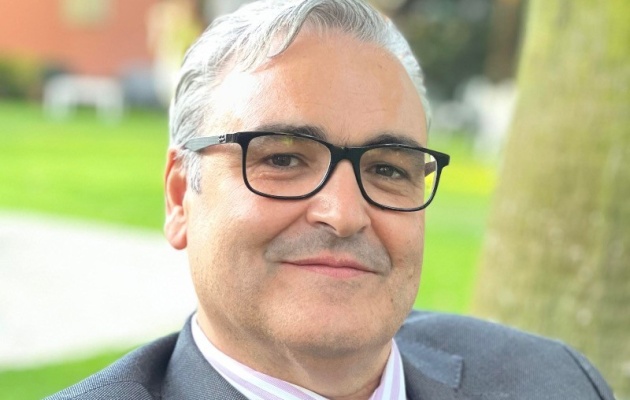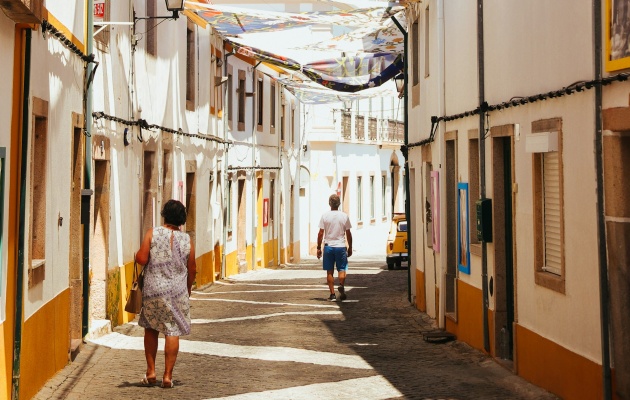Pessimism in Portugal: financial struggles of families and weakened public services give wings to populism
Young people are emigrating, housing prices continue to rise and the health system is overburdened as the country awaits the formation of a new government, says an evangelical leader.
LISBON · 15 MARCH 2024 · 12:58 CET
.jpg)
Portugal is mired in pessimism and the parliamentary elections of 10 March proved it.
The Socialist Party of former Prime Minister António Costa, who resigned after being implicated in a corruption case, lost a third of the seats in the Assembleia da República. On the other hand, the conservative Social Democratic Party barely improved its situation and won the elections with a handful of votes more.
On a day when citizens came out to vote with enthusiasm (a 66% turnout, the highest in thirty years), the big name was Chega, a five-year-old party with new hard right proposals to tackle Portugal’s multiple crises. Its founder, André Ventura, convinced more than 1 million voters, quadrupling its seats (from 12 to 48) to become an indispensable force in the country.
“We don't have a clear winner”, summarises Josué Da Ponte from Lisbon. Talking to Evangelical Focus, the general secretary of the Portuguese Evangelical Alliance (AEP in Portuguese) says other parties do not want to reach agreements with Chega, whose discourse often includes “speech against immigrants and some ethnic groups”. But building a government without receiving the go-ahead of the emerging populist movement may prove very difficult.
Expensive housing, low salaries: the young leave
As more people arrive to start a new life (mostly from other regions of the world such as East Asia), the price of housing in Portugal has become “very expensive and takes a huge part of a family’s budget”, says Da Ponte. This is a reality beyond the most popular cities like Lisbon or Porto, leading to situations in which “families have to share apartments with others to pay the rent”. Others struggle much to pay their debts.

Josue Da Ponte, secretary general of the Portuguese Evangelical Alliance. “The cost of life is so high and wages are so low, that many qualified young people emigrate after finishing their university degree”. For the younger generations, “it is easier to find a well-paid job outside their country”, observes the evangelical pastor. In fact, “many of them are recruited when they are still in university” by companies from central Europe, where salaries can be three times higher.
Recent statistics show that Portugal is among the four European Union that lose most population. 9% of the Portuguese live elsewhere in Europe, in a country where migration stories have shaped the culture’s identity for decades.
“People need stability”, admits Da Ponte, and “here it very difficult to rent an apartment, to start a family, to get further in life”.
Not enough teachers and doctors
As other European nations, Portugal is also going through a demographic winter. Only 1.4 children per couple are born and already one third of the population is retired.
“The educational system is going through difficult times, as many teachers are getting older and retire: and there aren’t enough teachers to replace them as the lack of investment is becoming clear”, says Da Ponte, who has lived in several parts of the country throughout his life.
Additionally, Portugal has “a social security system that is very heavy and takes a great part of the budget. And our health system is overloaded”.
How churches can make a difference with the gospel
So, how can Portuguese Christians and churches make a difference in this difficult context? “The big challenge that we have at the moment is to do efficient ‘social evangelism’”, the secretary general of the AEP says.
Churches need to respond to the “many families struggling just to have food on the table as young people leave our country. The leadership of the church is also, in many cases, becoming very aged, just as the whole of our society, so we need to renew the leadership and invest in young disciples”, Da Ponte continues.
This is a time to “pray for our teenagers, because in this stage of their life, many are moving away from the church”, he says.

People in the interior viallage of Nisa, in Portugal. / Photo: Laura E., Unsplash, CC0. Praying for Portugal
Other prayer requests shared by Josue Da Ponte have to do with “the interior of our country, where there are still many small towns without an evangelical church”.
“Please do also pray for the vision to reach the large number of immigrants that are coming to Portugal, many of them from India, Nepal and other countries”.
The evangelical representative also asks to pray for “the migrant churches, especially the Brazilian communities, that they might be able to reach the local Portuguese people as well”.
One more year
Learn all about our #OneMoreYearEF campaign here (English).
Published in: Evangelical Focus - europe - Pessimism in Portugal: financial struggles of families and weakened public services give wings to populism
